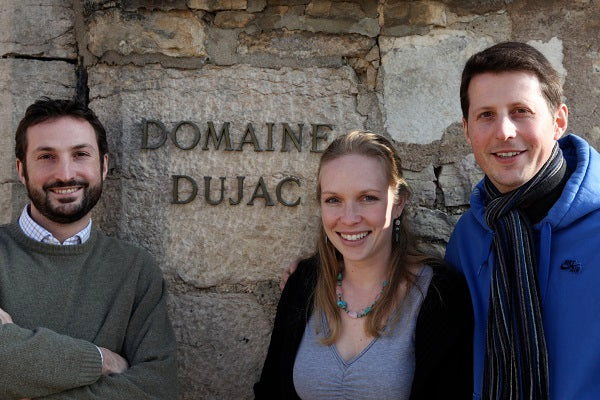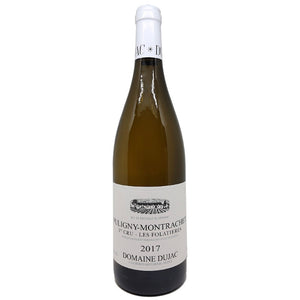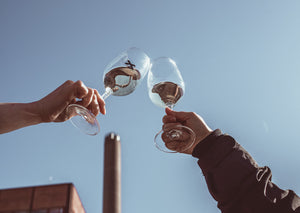
Domaine Dujac
Although Jacques Seysses is not a Burgundian by birth, he felt a strong calling to winemaking from a young age. This goes back to his childhood, when Jacques followed his culinary father around the world, visiting numerous top winemakers. At the age of 25, Jacques Seysses left his job at his family's biscuit factory and in 1966-67 studied winemaking at Domaine de la Pousse d'Or's Gérard Potel bakery in the village of Volnay. After this, Jacques felt he was ready to start his own estate and in 1968, when he bought the Domaine Graillet estate and playfully renamed it Domaine Dujac, referring to his ownership, "Domaine du Jack" was born one of the most famous farms in Morey-Saint-Denis.
In 1973, Jacques married Rosalind, an American, and twenty years later, in 1998, the couple's eldest son, Jeremy, started working alongside his parents. In 2001, Jeremy's American winemaker wife, Diana Snowden, joined the team, and two years later, Jeremy's younger brother Alec also started working in the family business.
The farm started with only 5 hectares, but by 1977 Jacques and Rosalind had increased their holdings to 11 hectares. Today, the farm owns up to 17.5 hectares, and all vineyards have been certified according to organic viticulture since 2011. The first experiments with organic viticulture had already started in the 4-hectare vineyard area in 2001, and with an encouraging example, the method was extended to all vineyards in 2008. In addition to organic cultivation, biodynamic cultivation methods have been used in the vineyards since 2003.
In 2014, the farm's vineyards located in Morey-Saint-Denis expanded to Puligny-Montrachet and Gevrey-Chambertin, when the farm managed to lease the premier cru vineyards of Folatières and Combettes. In the vineyards, the focus is on quality instead of quantity, and the soil is plowed mechanically to control weeds. Sometimes organic compost is added to nurseries to increase their microbiological activity and maintain the mineral balance of the soil. There are several vineyard workers and each one is responsible for about 2 hectares of vines.
Although the technology used in winemaking has changed during the farm's almost 60-year history, the farm's winemaking itself has not experienced major changes. Wines are made with simple and reduced methods without unnecessary manipulation. Dujac has always appreciated the sensitivity that using whole bunches brings to the wines. Consequently, the farm's wines are generally made without removing the stems, depending on the characteristics of each vintage. The wines ferment with the help of the grapes' own yeast strains, and the extraction that takes place during the fermentation process, which lasts a couple of weeks, is very gentle. After light pneumatic pressing, the wines are lowered by gravity into barrels, where the wines mature for 14-18 months. The barrels are bought a couple of years before they start to be used, so that they have time to dry out on the farm. Due to the softening of the tannins, a significant part of the farm's barrels are new.
In 2000, the Seysses founded the micronégociant business Dujac Fils & Père to produce wines that are fruitier than domaine wines. However, the wines are made using the same methods, with careful craftsmanship, and the harvest is done by Dujac's team. The plots from which grapes are bought year after year are located near the farm, because the Seysses feel that they know that area the best. These wines are often drinkable at a younger age than the wines bearing the name of the estate.
Dujac's annual production is about 80,000 bottles and Dujac Fils & Père about 20,000 bottles. The producer has an organic certificate.






